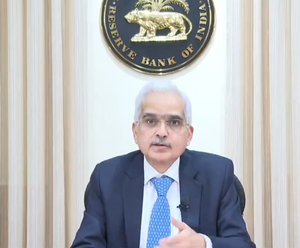Rising STDs a concern for increasing infertility in India: Doctors

The spike in the number of Sexually Transmitted Diseases (STDs) like chlamydia, gonorrhoea, syphilis, and mycoplasma genitalium are contributing to infertility in India, warned doctors on Tuesday.
Sexually Transmitted Infections (STIs) may pass from one infected person to another via blood, semen, vaginal, and other bodily fluids through sexual contact.
While these are usually asymptomatic, they can cause serious complications like infertility, both in men and women, if left untreated.
According to the World Health Organisation (WHO), almost 1 million people worldwide contract STDs.
Each year, about 30 million people in India alone contract STDs.
On the other hand, a recent Lancet study showed that India’s Total Fertility Rate (TFR) — the average number of children born per woman — is dipping irreversibly to 1.29, far lower than the replacement rate of 2.1.
Explaining the link between the two, gynaecologist Dr. Manisha Singh from Fortis Hospital, Bengaluru, told IANS, “STIs like chlamydia, gonorrhoea, syphilis, and Mycoplasma genitalium can sneakily mess with fertility. They cause inflammation and scarring in reproductive organs, like the fallopian tubes in women or sperm ducts in men.”
“Chlamydia and gonorrhoea are the two most common infections in women that can cause infertility. These infections cause pelvic inflammatory disease (PID) which can lead to chronic inflammation and damage to reproductive organs, like the fallopian tubes and uterus, making it difficult to conceive,” added Dr. Dhivya Chandrasekar, Consultant – Obstetrician & Gynecologist, Motherhood Hospitals, Bengaluru.
“In men, it results in inflammation of the urethra, testicles, and other reproductive organs, which can lead to severe conditions like epididymitis or prostatitis, harming sperm production and quality,” she told IANS.
The doctors said detecting and treating these infections early and having safe sex, are crucial to protect fertility.
When the tubes get blocked, one may require In Vitro Fertilisation (IVF), where fertilisation happens outside the body in a lab, as it can’t occur naturally within the fallopian tubes.
“If you suspect the presence of an STI, it is best to get it diagnosed at the earliest. One must prioritise preventive measures like when used correctly and consistently, condoms offer one of the most effective methods of protection against STIs, including HIV,” Dr. Dhivya said.





